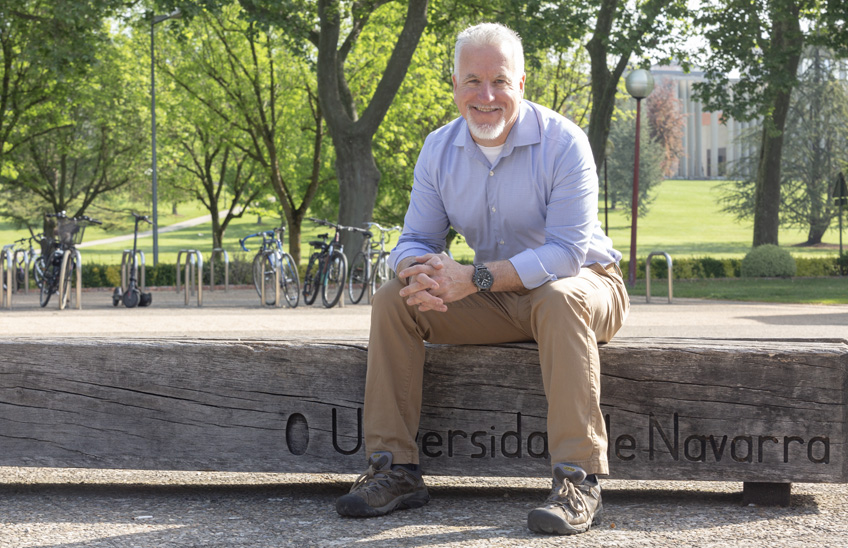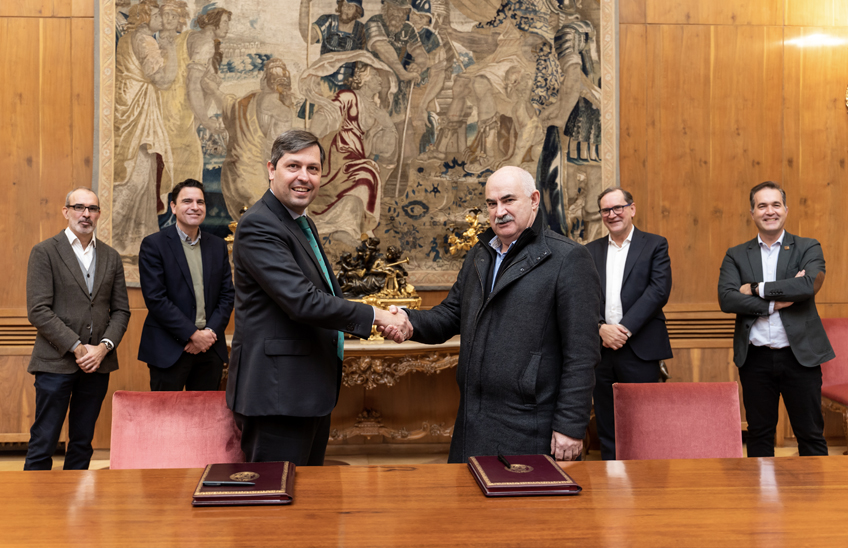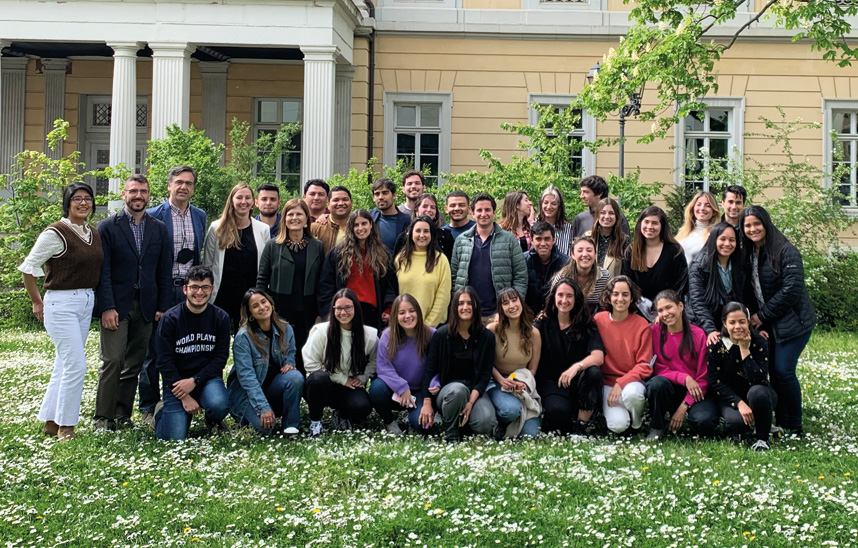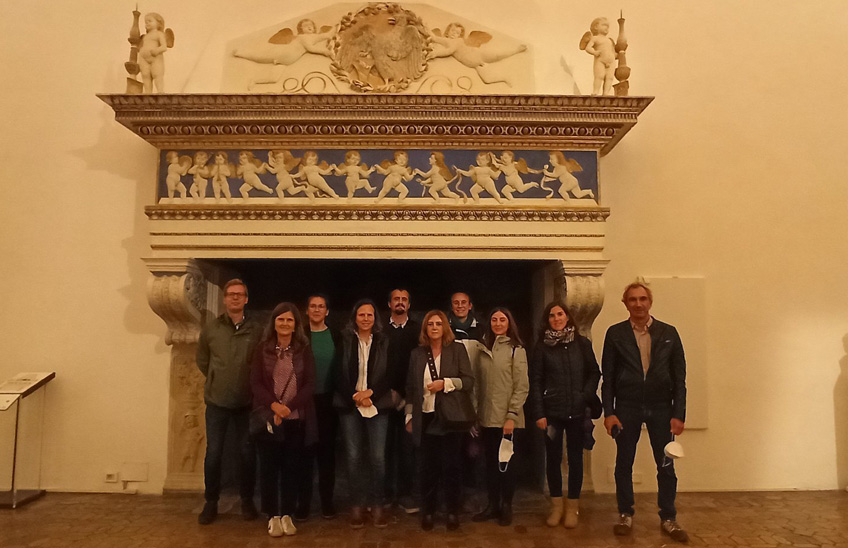The president María Iraburu: "In sustainability, universities can provide the reliability of the research"
The University brings together 110 rectors, vice-rectors and academic managers from 25 universities and 12 countries for a course on strategic management.
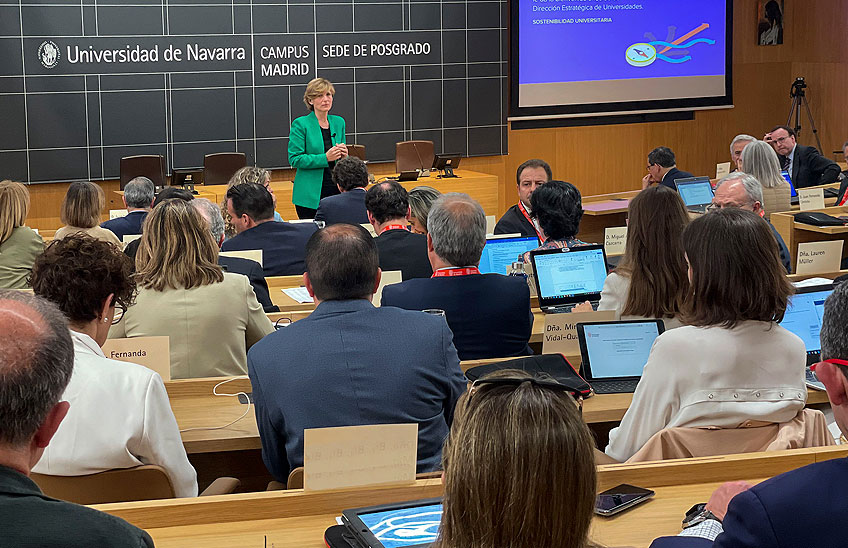
FotoCedida/The president of the University of Navarra, María Iraburu, during a moment of her speech at the Course on Strategic Management of Universities.
11 | 05 | 2022
"The cause of sustainability needs solid and well communicated science and universities can provide the reliability of research", explained María Iraburu, president of the University of Navarra, at the opening of the Course on Strategic Management of Universities organized by the academic center at its campus in Madrid.
María Iraburu stressed the link between sustainability and the task of government, which "looks to the long term deadline and is linked to its identity and its mission statement". The president has analyzed the attributes of sustainability and has proposed to deepen the relationship between the objectives of diary 2030 and the problems of a technocratic society from a critical and proactive point of view: "The challenges of society are a call and we are at the time to step forward to lead these issues. The great challenge is to train people committed to the common good from their professions".
The course, which is organised by the Centre for University Governance and Reputation of the University of Navarra, brings together 110 rectors, vice-rectors, deans and academic managers from 25 public and private universities from 12 countries to reflect on the university contribution to social, economic and environmental issues from different perspectives, such as strategic management, teaching, researchand managementof intangibles.
The president stressed the importance of developing initiatives aimed at problem solving and understanding these as "the best way to address the multidisciplinarity", which requires a "lively, open, flexible, collaborative" university model .
In this sense, he pointed out that the institution must be understood as "a living laboratory, where habitus models are established and the needs of the environment must be taken into account"; a place of meetingof knowledge, where, as he points out, there must be no polarisations or predetermined positions.
In the course, quotationacademics from twelve countries: Spain, United Kingdom, Italy, Australia, Mexico, Colombia, Peru and Nigeria, among others, with the aim of purposeto think and design scenarios taking into account the impact and opportunities offered by universities in the trainingof future professionals.
In addition to the president of the University of Navarra, other speakers at the course include Rolando Roncancio, President of the University of La Sabana (Colombia); Alfonso Sánchez-Tabernero, President of the University of Navarra (2012-2021); Juan Manuel Mora, Vice President of Communication of the Pontifical University of the Holy Cross; Santiago Fernández-Gubieda, director of the Reputation Unit of the University of Navarra; Times Higher Education's director of Analysis and data , Duncan Ross; the president of the Monash Sustainable Development Institute & ClimateWorks (Australia), John Thwaites; the dean of the School of Education and Psychology of the University of Navarra, Concepción Naval; the professor of the University of Valencia, María Iborra; the director of the Centre for Sustainable Solutions of the University of Glasgow, Jaime L. Toney; IESE Business School professors Yago de la Cierva, Carlos Rodríguez-Lluesma, José Manuel de Toro and Julián Villanueva; and University of Navarra professor Álvaro Lleó.

